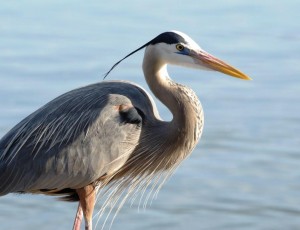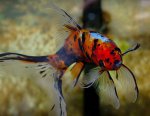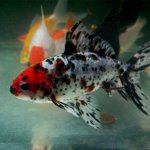You are using an out of date browser. It may not display this or other websites correctly.
You should upgrade or use an alternative browser.
You should upgrade or use an alternative browser.
how to start a pond with 2 baby koi?
- Thread starter alice
- Start date
- Joined
- May 14, 2015
- Messages
- 138
- Reaction score
- 34
- Country

Would dogs keep them away and would they come into the city?This is a neat heron write up. It took us three years to finally stop the heron from enjoying the sushi bar.
THE GREAT BLUE HERON AND YOUR POND
By: Mike Gannon | Posted On: March 27th, 2011 | 26 Comments on THE GREAT BLUE HERON AND YOUR POND | In: Uncategorized

LOOK! Up in the sky! It’s a bird, it’s a pla… no, actually it is a bird! About the size of a plane!
The Great Blue Heron (Ardea herodias) is North America’s largest heron coming in at about 4 ½ feet tall, 8 lbs., and with a wing span close to 7’ across!
This is no hummingbird.
This commonly found heron has made its home from Mexico to Canada, and even shows up in the Caribbean here and there. The Great Blue Heron likes to roost and hunt along the coastline, estuaries, lakes, and ponds of most of the North American continent making this bird a pretty successful resident of all parts; living in tree top colonies raising 2-5 babies annually. The Great Blue Heron has also managed to find its way right into the backyards of some North American koi pond and water garden owners too.
For most pond owners their first experience with the heron is indirect, when their pond fish start to disappear in part or in whole. A call is made to their pond guy and that is when they first start to hear about the Great Blue Heron. At that point is when customer pond vigilance against the heron usually begins. And it should, because if the heron knows that a quick meal can be had at your pond (aka the Great Blue Sushi Bar) they will come back, and that is when a pond owner will first see this long-legged bird hanging around their pond. Typically the heron will wade into the pond, or stay pond side in a crouching position, and wait patiently for a curious fish to come investigate. These huge herons can crouch into a surprisingly small size. The heron knows that in time a curious fish will approach, and BAM! the GBH spears the fish with its long sharp bill, flips it into its mouth, and swallows the fish whole; this whole process happens lighting quick and is very quiet with hardly a splash to the water. If the fish are small enough the heron will continue this until there is nothing left in the pond, or it cannot physically fit anything more into its body; whichever comes first.
But the Great Blue Heron is not at the pond just to eat fish, oh no, this bird will also take down frogs, large insects, shrimp, crabs, small birds, chipmunks, squirrels, mice, snakes, turtles, baby rabbits and just about anything else that it can eat. It is an equal opportunity hunter and a pond can provide many variety of delicacy. It always seems that the pond owner encounters the Great Blue at mid-feast. Although, these birds might have the appearance of being slow and awkward, they will disappear in a flash. The GBH is incredibly swift on the getaway flight; it gains height and distance quickly, and can reach up to 30 mph when cruising. The GBH also will often cruise at heights just above tree line at 80-90 ft up looking for reflections of water from below. Once that body of water reveals itself to the heron, like a mirror in the sun from below, it will go to investigate it, little colorful fish in the pond; all the better.
The heron is pretty sophisticated in its approach and does not just drop out of the sky haphazard into your backyard pond. Hunting activity is typically done alone on smaller bodies of water, but they will share larger bodies of water. The heron spots a reflection from a pond and will then circle in slowly to find a tree or roof top where it can then use its incredible eyesight to scout out your pond and see what type of meal(s) may be available, and if there are any threats in the area. The Great Blue Heron is very patient and can take quite some time before starting the approach to your pond. Once the area is deemed non-threatening and meal worthy, the heron will fly down to an open area by the pond. It will not plunge into your pond like the return of Apollo 11, nor drop into the body of water like ducks or geese do, the GBH prefers a landing strip and a slow careful “wade-in” approach; stealth is the way of the Great Blue. Once the heron is pond side it has the ability to blend in very well. I’ve actually looked straight at a heron that was IN my pond and did not see it because it was so motionless and its coloring of slate grey mixed with white and black, is such that it just was not very visible even right in front of my eyes. But before I could get to my door to chase it away, it was already high in a tree and gave off a heron call; not a pretty sound either but a kind of harsh croak. The GBH will often fly off just to circle back within minutes and if the threat (you) are gone they are right back to their fine dining.
The GBH really is a majestic bird apart from its desire to eat our pond fish. It is very intelligent and capable of figuring out deterrents that are meant to scare it away. With a life span up to 15 years they can get lots of experience with our sometimes useless methods of trying to keep them away. They seem to have “routes” and will visit the same ponds again and again with each visit being a learning experience about that pond. Typically Great Blue Heron hunt early morning or early evening, but will come at anytime of day. The best means to keep the bird away is to use multiple methods of deterrent. Do not rely on any one form of deterrent because a heron will eventually figure them out to be harmless. I have watched herons figure out ponds protected by fishing lines, I’ve seen a customer’s home video of a heron attacking a heron decoy. Herons do not mind getting the blast of water from motion detector deterrents once they know it does not hurt (they ARE water birds), and scant few of us pond keepers can really put in the time to sit next to our pond waiting in ambush (and if you do have that kind of time, would you want to admit it?) So use multiple deterrents and be creative, but the most important thing is to simply not let the heron have any sense of welcome or peace at your pond site. Chase it; yell at it, throw things, let out the hounds, do what you have to do to keep the bird away. This way you can get to learn how to enjoy this truly amazing, adaptable animal back in Mother Nature’s waters, not yours!
Mmathis
TurtleMommy
- Joined
- Apr 28, 2011
- Messages
- 14,073
- Reaction score
- 8,192
- Location
- NW Louisiana -- zone 8b
- Hardiness Zone
- 8b
- Country

Yes, maybe, and if the dog is outside when the GBH shows up (but depends on what breed of dog, too, I guess). And yes, they can come into the city.Would dogs keep them away and would they come into the city?
sissy
sissy
- Joined
- Jan 17, 2011
- Messages
- 33,086
- Reaction score
- 15,707
- Location
- Axton virginia
- Showcase(s):
- 1
- Hardiness Zone
- 7A
- Country

I would go with fat fantails .They are slow growers and don't multiply .The wiggle there butts to get around .I have had mine since 2004 and never got a baby from there .
- Joined
- May 22, 2016
- Messages
- 141
- Reaction score
- 87
- Location
- Flowery Branch ga
- Hardiness Zone
- 7a
- Country

HAHA those 6" koi are a foot long now! Damn fish keep growing lol
- Joined
- Jul 12, 2016
- Messages
- 327
- Reaction score
- 298
- Location
- Croswell MI
- Hardiness Zone
- 6A, we are also very windy
- Country

Depends on the dog, my Dachshund/Chihuahua mix probably wouldn't intimidate a heron for very long, the Beagle and Jack Russell mix might have to rescue Taco from the bird! We have herrons in the area but haven't had any come in the yard, but they've definitely looked hard. I think it's do to the three dogs. We had one blue herron, at the pond at the old house (in the city), but it wouldn't walk in the pond liner and left. The old house was within walking distance of lake Huron on the east, we had a canal from the lake to our local river on the south and the local river on the west, so the herron wasn't under presure to be at the pond, YMMV.Would dogs keep them away and would they come into the city?
Ask a Question
Want to reply to this thread or ask your own question?
You'll need to choose a username for the site, which only take a couple of moments. After that, you can post your question and our members will help you out.
Forum statistics
Latest Threads
-
Pond lighting
- Started by Zacr1
-
2 (newbie) questions
- Started by andrewinva
-
Where have my fish gone?
- Started by GoldenOrfe
-
Parasite, tumor, or normal?
- Started by cmotaval
-
For Sale Moving Sale
- Started by LDWII
-
Wicking from top fleece liner
- Started by Wildlife Woman
-
Adding air stones to an existing pond?
- Started by kitenski
-
Blue Heron
- Started by clark kent
-
Pond picture
- Started by DawnNC
-
Do you have to run the pond pump through RDF control box?
- Started by GaryMoz




